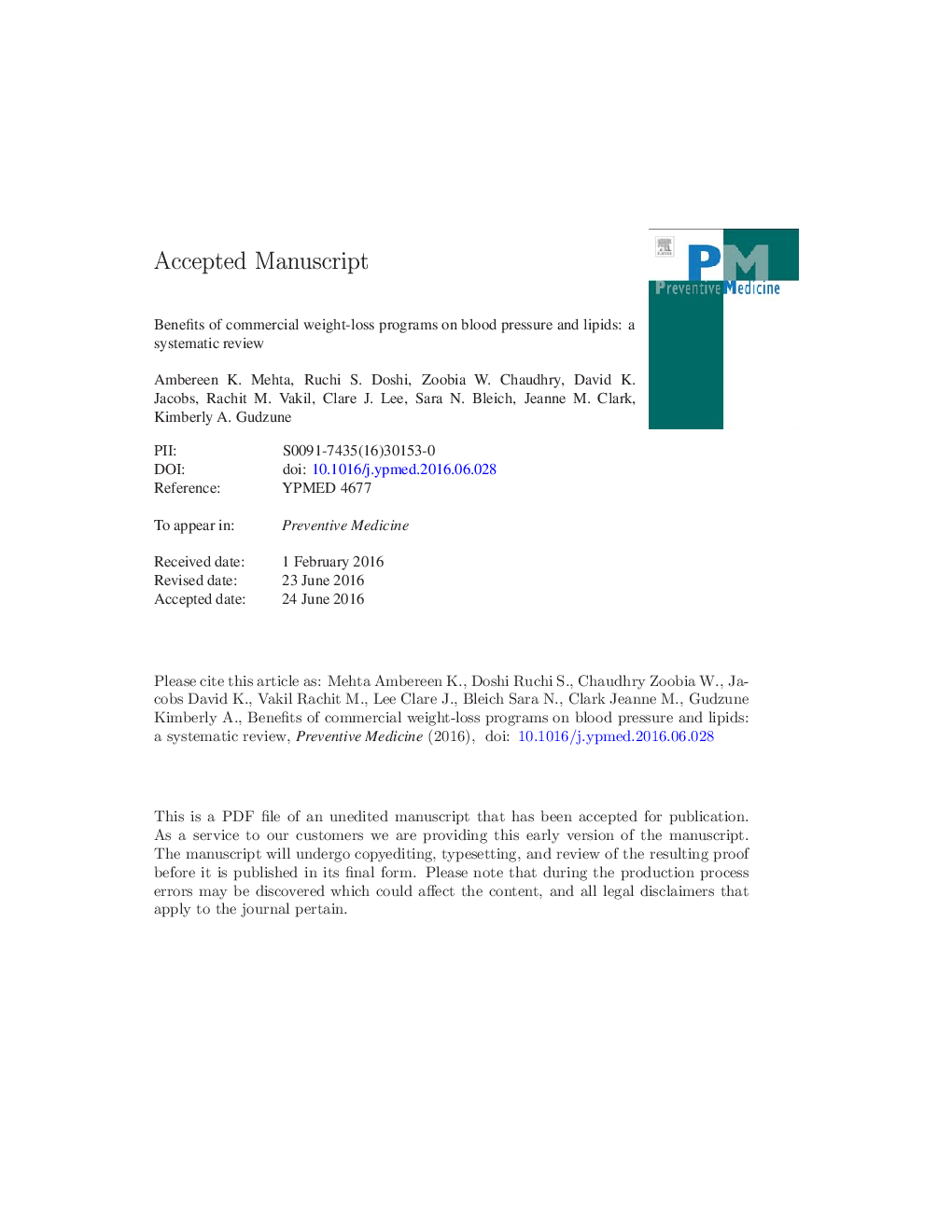| Article ID | Journal | Published Year | Pages | File Type |
|---|---|---|---|---|
| 6046025 | Preventive Medicine | 2016 | 37 Pages |
Abstract
Our objective was to compare the effect of commercial weight-loss programs on blood pressure and lipids to control/education or counseling among individuals with overweight/obesity. We conducted a systematic review by searching MEDLINE and Cochrane Database of Systematic Reviews from inception to November 2014 and references identified by the programs. We included randomized, controlled trials â¥Â 12 weeks in duration. Two reviewers extracted information on study design, interventions, and mean change in systolic blood pressure (SBP), diastolic blood pressure (DBP), low-density lipoprotein cholesterol (LDL-c), high-density lipoprotein cholesterol (HDL-c), triglycerides, and total cholesterol and assessed risk of bias. We included 27 trials. Participants' blood pressure and lipids were normal at baseline in most trials. At 12 months, Weight Watchers showed little change in blood pressure or lipid outcomes as compared to control/education (2 trials). At 12 months, Atkins' participants had higher HDL-c and lower triglycerides than counseling (4 trials). Other programs had inconsistent effects or lacked long-term studies. Risk of bias was high for most trials of all programs. In conclusion, limited data exist regarding most commercial weight-loss programs' long-term effects on blood pressure and lipids. Clinicians should be aware that Weight Watchers has limited data that demonstrate CVD risk factor benefits relative to control/education. Atkins may be a reasonable option for patients with dyslipidemia. Additional well-designed, long-term trials are needed to confirm these conclusions and evaluate other commercial programs.
Related Topics
Health Sciences
Medicine and Dentistry
Complementary and Alternative Medicine
Authors
Ambereen K. Mehta, Ruchi S. Doshi, Zoobia W. Chaudhry, David K. Jacobs, Rachit M. Vakil, Clare J. Lee, Sara N. Bleich, Jeanne M. Clark, Kimberly A. Gudzune,
